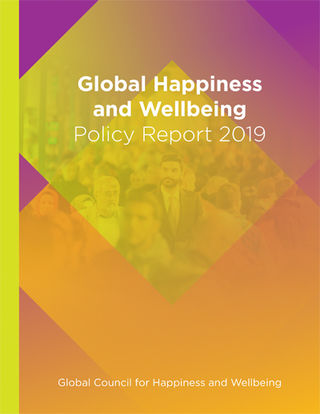
Happiness
Is There Really a "Global Happiness Council"?
Something is afoot in global governance, and it could make us all happier
Posted March 21, 2019
March 20th is the International Day of Happiness, celebrated since 2013 as a result of a United Nations General Assembly resolution sponsored by the tiny country of Bhutan. It has been a time to reflect on what the emerging and maturing science of happiness has to tell us about our daily lives—being kinder to others and ourselves, reflecting appropriately, staying active and exploring, connecting with people and the meaningful parts of life.

But in the last few years, something even more revolutionary is happening.
After decades of scientific research to understand whether we can sensibly measure the quality of life by asking people how good it feels, something has changed. The community of cautious economists and psychologists who study such "happiness" are turning their attention from explaining happiness to formulating happiness policies. We can already explain why some cities and some communities are happier than others. We can quantify and predict the missing happiness of individuals who become unemployed, or someone who has a long commute, or who is not able to trust their neighbors. We can explain why Scandinavian countries are the most satisfied with their lives, on average, and we can even explain why the population-weighted global average level of satisfaction with life has been decreasing every year since 2014 (see World Happiness Report 2019).
We now know enough about what makes for a good life in countries, communities, and for individuals that it makes sense for governments to change their approach—initially with caution but eventually profoundly. Evidence shows that to promote happiness, schools should be teaching more self-care and pro-social skills, health systems should be redesigned to promote subjective outcomes over old-fashioned physical ones, and government budgeting should be accountable to well-being rather than economic growth.
Thus, the science of well-being has given rise to policies for well-being. In February of this year, thousands of leaders from government, industry, and academia met in the U.A.E. for the World Government Summit, where one of the four major themes was the Global Dialogue for Happiness and Wellbeing.
It turns out that the U.A.E. is somewhat of a leader in this domain, having its own national Minister of Happiness. A few years ago, it helped to convene the Global Happiness Council. Even if that sounds Orwellian to you, the details will not. It's comprised of passionate leaders from academia, government, and business, and its goal is to identify best practices at the national and local levels to encourage the advancement of happiness and well-being. For the second year in a row, it published a Global Happiness Policy Report to survey and cross-fertilize the best ideas.

After years of thinking about how individuals, organizations, and community planners can use the science of happiness to improve their local environments, countries are instead being asked to change how they think and work at the top-most level, with every ministry in a national government being ultimately accountable to its impacts on well-being, rather than to the government bottom line, or the national GDP, or narrow traditional metrics that relate to one domain of policy. This portends a profound transformation, in which the well-being of children and their future selves becomes the goal of education, in which life satisfaction (which lies in the brain, not the body) becomes the ultimate goal of health care, in which branches of government can more sensibly work together with aligned goals, and in which society may finally have a credible, measurable, and understandable alternative to our unsettling but so-far inescapable obsession with economic growth as society's de facto objective.
In the next post in this column, I'll look at what happiness might look like around the world in 2050, depending on whether or not we take happiness policies seriously. In subsequent posts in this column, I'll explain more about the quiet revolution going on right now, in which the science of well-being is forcing us to rethink half of the economics, rethink policy, and rethink government.
Some countries are further along in this endeavor than others, and we'll explore both what is being done and why the findings from the science of happiness so threaten the status quo.
It's an exciting time!

